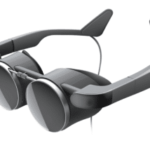Oculus Quest owners typing on a simulated keyboard in virtual reality might see a dialog box inviting them to “enable improvements” in exchange for the submission of “aggregate modeling data” to Facebook.
The new feature first started rolling out to Oculus Quest standalone VR headsets on December 18, 2020, according to Facebook. We first noted the dialog last week but missed the chance to capture a screenshot. UploadVR contacted Facebook for a copy of what the text says:
Help Improve the Oculus Keyboard?
If you enable improvements, keystroke data will be stored on your device, and only aggregated modeling information from your device will be shared with Facebook to improve the keyboard experience for everyone.
You can always turn off keyboard improvements in your device settings.
[options to select:] “No” OR “Enable Improvements”
Facebook says the feature is meant to improve “next word suggestions” while using the keyboard “without sending any keystroke information”. The company compares its operation to similar features in other generally available software-based keyboards like Android keyboard and Siri.
“This is an optional setting where people can choose to share aggregated information about their use of the keyboard with us to help improve the Oculus keyboard experience, specifically for next word suggestions. As the dialog notes, when you turn this setting on, keystroke information is not shared with Facebook (it’s stored on your device) and only aggregate modeling data is shared with Facebook,” a Facebook representative explained in an email.
The feature can be turned on or off in Settings at any time and that option can be found at Settings > Device > Keyboard and Mouse.
We put more questions to Facebook to ask for its definitions of “keystroke data” and “aggregate modeling data”.
“When this setting is enabled (eg, when someone opts in to “enable improvements”), we use an industry-standard, privacy-preserving machine learning technique called Federated Learning,” the company explained. “In Federated Learning, machine learning models are trained on a user’s device based on what they type, and only the trained models are sent back to Facebook’s servers to help improve the keyboard experience.”
We believe it is important to have an independent public record of features like these as well as how they are communicated to users. Previous reports from us covered Facebook’s explanations about its Oculus Web browser, the functionality of its Insight tracking system and the light built into Quest which Facebook says is hard-wired to turn on when the cameras on the headset are active.





